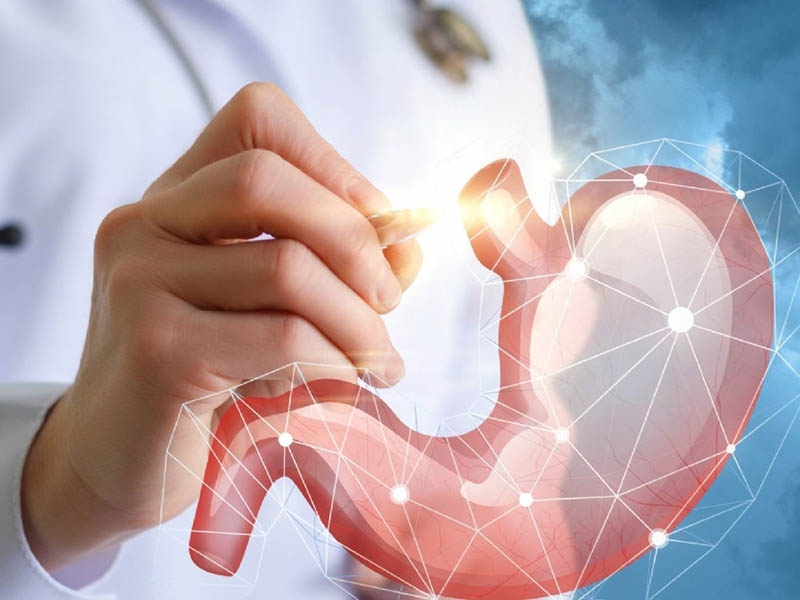Clinic Consultation in High Wycombe / Buckinghamshire, is recognized for its superior Gastroenterologist care, providing expert diagnosis and treatment for a wide array of digestive system and liver disorders. Our clinic is equipped with state-of-the-art technology and staffed by board-certified gastroenterologists who are committed to delivering the highest quality of care. We specialize in managing conditions such as acid reflux, IBS, Crohn's disease, ulcerative colitis, liver diseases, and pancreatic disorders, among others. Understanding the impact of gastrointestinal issues on a patient's quality of life, our team offers personalized care plans, emphasizing minimally invasive diagnostic and therapeutic procedures to ensure comfort and promote effective healing. Clinic Consultation prides itself on a patient-centric approach, ensuring that each individual receives comprehensive support, from initial consultation through treatment and follow-up. For those in High Wycombe / Buckinghamshire, seeking exceptional Gastroenterologist care, Clinic Consultation is the trusted choice, dedicated to improving health and well-being with advanced gastrointestinal healthcare solutions.
Gastroenterologist in High Wycombe / Buckinghamshire

Watch our video about Gastroenterologist
Gastroenterologist in High Wycombe / Buckinghamshire
Click here to schedule an appointment online
What Does a Gastroenterologist Do?
A Gastroenterologist is a medical specialist who focuses on diagnosing, treating, and preventing conditions affecting the gastrointestinal (GI) tract and related organs. These include the oesophagus, stomach, intestines, liver, pancreas, and gallbladder. Their expertise covers a wide range of issues, from digestive discomfort to chronic diseases, ensuring optimal digestive health for their patients.
At Clinic Consultation, our Gastroenterologists use advanced diagnostic techniques and evidence-based treatments to provide personalised care. They aim to identify the root causes of digestive problems and create tailored treatment plans, helping patients achieve lasting relief and improved quality of life.
What Conditions Does a Gastroenterologist Treat?
Gastroenterologists manage a broad spectrum of digestive conditions, including:
Acid Reflux (Gastroesophageal Reflux Disease, GERD)
Treats heartburn and regurgitation caused by stomach acid flowing back into the oesophagus.Irritable Bowel Syndrome (IBS)
Manages abdominal pain, bloating, and irregular bowel movements with dietary and medical interventions.Inflammatory Bowel Disease (IBD)
Includes conditions like Crohn’s disease and ulcerative colitis, characterised by chronic inflammation of the digestive tract.Gallstones
Diagnoses and treats blockages in the gallbladder that cause pain and digestive issues.Hepatitis
Treats liver inflammation caused by viral infections, alcohol use, or other factors.Coeliac Disease
Manages gluten intolerance that damages the small intestine lining.Colon Cancer and Polyps
Detects and removes polyps to prevent colorectal cancer through regular screenings.
How Can a Gastroenterologist Help?
A Gastroenterologist can significantly improve your digestive health by addressing both acute and chronic issues. They provide relief from symptoms such as abdominal pain, bloating, or diarrhoea while diagnosing underlying conditions like GERD or IBD. Their expertise ensures a targeted approach to resolving digestive discomfort and preventing complications.
At Clinic Consultation, our Gastroenterologists go beyond treatment, offering education on dietary changes, lifestyle adjustments, and preventive measures to promote long-term digestive wellness. Whether you're dealing with a recurring issue or need a screening, they are here to help.
What Tests Does a Gastroenterologist Request?
To diagnose and monitor GI conditions, Gastroenterologists rely on a range of diagnostic tools, including:
Endoscopy
Examines the upper digestive tract to identify conditions like ulcers or acid reflux.Colonoscopy
Inspects the colon and rectum for polyps, inflammation, or cancer.Ultrasound
Assesses organs like the liver, pancreas, and gallbladder for abnormalities.Stool Tests
Detects infections, inflammation, or blood in the stool.Liver Function Tests
Evaluates liver enzymes and bilirubin levels to check for liver damage or disease.pH Monitoring
Measures acid levels in the oesophagus to diagnose GERD.Small Bowel Imaging
Includes tests like MRI or CT scans to detect obstructions or Crohn’s disease in the small intestine.
When Should You See a Gastroenterologist?
Timely consultation with a Gastroenterologist is essential for proper diagnosis and treatment. Here are seven key situations where their expertise is needed:
Chronic Heartburn or Acid Reflux
Persistent symptoms could indicate GERD, which requires specialist evaluation to prevent oesophageal damage.Abdominal Pain or Bloating
Recurring or severe discomfort may signal IBS, IBD, or other gastrointestinal issues needing professional care.Changes in Bowel Habits
Unexplained diarrhoea, constipation, or blood in the stool should be assessed immediately.Unexplained Weight Loss
Losing weight without trying may indicate a serious condition, such as cancer or malabsorption disorders.Liver Issues
Symptoms like jaundice, fatigue, or dark urine warrant liver function evaluation by a Gastroenterologist.Family History of Colon Cancer
Regular screenings are essential if colorectal cancer or polyps run in your family.Difficulty Swallowing
Problems with swallowing may be linked to oesophageal disorders, requiring prompt diagnosis.
How to Prevent Digestive Diseases
Preventing digestive diseases involves adopting healthy lifestyle habits. Eating a balanced diet rich in fibre, staying hydrated, and avoiding excessive alcohol or processed foods can improve digestive health. Regular exercise and maintaining a healthy weight also reduce the risk of GI conditions like acid reflux or gallstones.
Routine check-ups and screenings with a Gastroenterologist at Clinic Consultation help identify potential issues early and keep your digestive system functioning optimally.
What to Ask a Gastroenterologist During the First Consultation
To get the most out of your visit, consider asking:
- What could be causing my symptoms?
- Are there dietary changes that could help?
- What tests do I need to confirm a diagnosis?
- What are the potential treatments for my condition?
- Are there any long-term complications I should be aware of?
- How can I prevent this condition from worsening?
- Should I schedule regular follow-ups or screenings?
Book Your Appointment at Clinic Consultation
If you're experiencing digestive discomfort or need expert advice on gastrointestinal health, our experienced Gastroenterologists at Clinic Consultation are here to help. Schedule your consultation online today and take the first step towards a healthier digestive system.